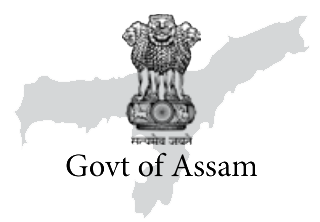Wades of cash on the bed or on a table, and invariably a person with his hands up in surrender either at home or in office do not make for good optics or viewing for any society. The satisfaction, of course, lies in the breakthroughs that the anti-corruption wing of the State has nailed yet another corrupt Government servant. In the last couple of years of the present Government in Dispur, hundreds of individuals have been proverbially caught red handed in well laid traps by an ever-vigilant Directorate of Vigilance and Anti-Corruption (DVAC) of the Government of Assam. This reinforces the Government’s claim that it will be a transparent and corruption free Government that will ensure development of the State and its people.
Take this episode from Cachar. A greedy official demands money from a sawmill owner for a routine job. The owner of the mill accordingly informs vigilance officials about the conduct of the officer. A team from Guwahati leaves for Cachar the same evening. The next day, a trap is laid, and the officer is caught accepting ‘bribe’ in the middle of a road. The trap was carried out with absolute precision resulting in the arrest of the officer of the Forest Department.

This is one of the examples in the last couple of years where a no-nonsense approach of the Government has meant that 157 Government employees and dozens of middlemen have been arrested besides recovery of assets and cash worth Cr.s (Please See Box). The message is loud and clear from the Government that it will brook no tolerance for such conducts of officials and middlemen. This has also won the Directorate appreciation from many quarters. One of them being Assam’s former DGP Mukesh Sahay. “It is the duty of any Government to prevent corruption and crack down on the corrupt. This gives a meaningful message to the society at large. Yet, it cannot just be the role of the Government. Even a society needs to be vigilant about it. I feel educational institutions, and guardians, too, need to create awareness among the next generation about the perils of going after easy money. Even the media need to be ever vigilant about it,” the former top cop told Asom Barta.
Additional Director General of Police Surendra Kumar, who is heading the Directorate, told this newsletter that there is a standing instruction from the Chief Minister to crack down hard on corruption in any form. “We have come hard on all forms of corruption in the last two years. We have mounted sustained campaigns against it, and even the people of Assam have supported us. They are trusting us to deliver. What we are also doing is to create awareness against corrupt practices at public forums,” he said.
“The reason why people are trusting us in this effort is the result that we have achieved. From the lowest strata of Government employees to senior officers, we have netted them irrespective of power and position. What is more is that we have netted our own colleagues in the Home Department. When you can display this sort of neutrality in carrying out your duties, people’s trust in you automatically grows,” Kumar told this reporter while adding that they are relentless in covering all bases to ensure that those arrested end up behind the bars.

It is not only the anti-corruption wing that is beating down on unethical conducts of officers, but the Chief Minister’s Special Vigilance Cell has also added to the woes of the corrupt officers.
Superintendent of Police in the Cell Rosie Kalita informed this newsletter of the work that is required before they swoop down on such individuals.
“We do our research after receiving complaints. We have full freedom to carry out our activity. There is a standing instruction from our Chief Minister that this kind of behaviour needs to be checked come what may,” she said. She added that they have received support from the people of the State in taking their efforts to their logical conclusion.
She recalled one of the instances where the Chief Minister had apprised the Cell about a complaint, during his visit to Dhekaijuli, which resulted in immediate success.













